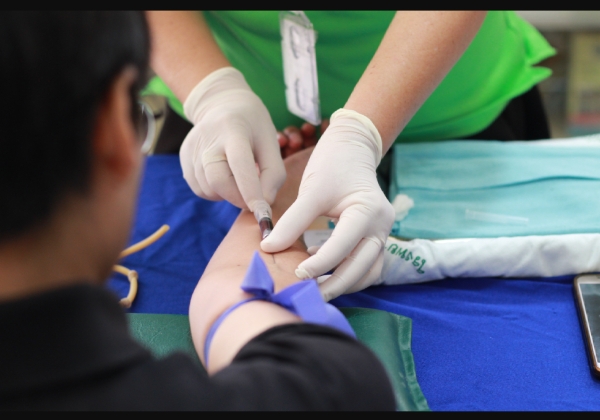Search Contents
Blood Donation – 10 Important things you should know
When you are Preparing Yourself for Blood Donation; what are the 10 important things you should Know? Blood Donation – 10 Important things you should know
It is wrong to just wake up one morning and walk into the hospital for blood donation. For the sake of your life and that of the recipient, there are things you should know. All you should know before Donating Blood.

Saving people’s lives can be as simple and straightforward as donating blood. Most people think that it is only when you become a health worker like doctors and nurses that you can play an active part in saving a patient’s life. But this is not true.
There are several other ways through which we can participate in saving a patient’s life without being a health worker. One could be paying for their hospital bill, and another which this post is meant to address is donating blood.
What are the types of blood donation?
There are 3 main types of blood donation, and all are classified under Voluntary blood donation.
-
Freewill Voluntary Blood Donation
This is when someone willingly donates blood for free without any form of reward or compensation.
-
Paid Voluntary Blood Donation
In this case, you are getting a reward for donating blood either in cash or in kind.
-
Autologous Blood Donation
In this type of blood donation, someone usually with a rare blood type donates blood for themselves which is kept by the blood banks till they need it; like when they fall sick.
Blood Donation – 10 Important things you should know
Which is the best?
There is no clear-cut answer to this question. One important fact is that it is your blood, and you can do with it whatever you want. But for the records, out of the three types of blood donors, those who are more likely to have the highest satisfaction and peace of mind are the free-will blood donors.
To help you understand completely how blood donation works, the benefits, disadvantages, and requirements, then you should read this article on blood donation.
But before then, let us quickly jump into the topic for this particular post.
Preparing Yourself for Blood Donation
(Image from Pexels for illustrations)
In as much as you want to donate blood and save people’s lives, there are a lot of things you should have in mind before you go ahead to donate blood. You must first understand that blood donation should be very safe both for you; the donor, and the recipient. This is why I have compiled this list of 10 things you should know while preparing yourself to donate blood.
- First, you must be 18-65 year old
Before you are eligible for blood donation, you must first of all be an adult. For a place like Nigeria, you must be at least 18 years of age. This is mainly because 18 years is the medico-legal age of consent. So someone younger than 18 who is found donating blood even though it is voluntary, is seen as child abuse.
Also, you must not be older than 65 years of age. At this age, you should be more concerned about your own health and it is not advisable to go through the blood donation process.
- Ensure that you have not donated blood for the past 3 months
It takes our blood approximately 3 months or 120 days to be replenished. So after each episode of blood donation, you must have to wait for another 3 months or 120 days before you can donate again.
- Make sure you are not suffering from any form of Blood (transfusion) transmissible infections
Transfusion transmissible infections are those infections that can be transmitted from a blood donor to a blood receiver assuming the donor is infected. Some of them include; HIV/AIDS, Syphilis, Hepatitis, etc.
- Ensure you are not a pregnant or breastfeeding mother
It is not advisable for pregnant women to donate blood for any reason. This is because they need more of it to nourish the baby in their womb.
- You must not be suffering from some critical diseases
There are some illnesses that make you ineligible for blood donation. If you are suffering from an illness like hypertension, cancer, sickle cell, respiratory illnesses like asthma, cystic fibrosis, some brain disorders, etc, then, of course, you should not donate blood.
- You should feed well before donating blood
Only the healthy can save the dying. You can not donate blood if you do not feed well. So before you go to donate blood, you must have been on balanced diets within the few days before donating blood.
- Drink plenty of water before going to donate blood
Our body loses a lot of fluids during blood donation. So before you donate blood, you must prepare ahead of time by taking lots of water. This should be continued even after donating blood. This will help you to recover the fluid you lost during the process.
- Wear convenient clothe before going to donate blood
Short leaves or sleeveless shirts are much preferred. This is because the most preferred vein for blood collection is located just anterior (in front) of our elbow. So, it will be inconvenient to fold your long sleeves in the bleeding room. So wear a cloth that makes you free with less tension.
- Do not Donate Blood after Vaccination
If you just received a vaccine, you must wait for 2 months before you are eligible to donate blood.
- People with certain occupations should not donate blood if currently at work
This does not mean that people in these occupations cannot donate blood at all. But they cannot donate blood if they are meant to return to work within 2 days after they donate blood. If not they experience fainting as a result of the body fluids they lost. Examples of such occupations include;
Drivers
Pilots
Heavy machine operators (example; crane operators)
Athletes
Miners
Scaffolding, etc.
Blood Donation – 10 Important things you should know
Conclusion
Donating blood is a very fulfilling and selfless act. Much fulfilling is free-will blood donation. But in places like Africa, a lot of people are still being tied down by a lot of blood donation myths which discourages them from engaging in this selfless act.
But there is completely nothing wrong and absolutely nothing to lose by donating blood. Let’s make it a norm in our lives, a lot of people depend on it to be alive. They are within the four walls of the hospital wards, you can be their only hope of living.
Written By Paschal Madueke
ABOUT THE AUTHOR
Madueke Paschal is a Medical Student, Blogger, and Digital Marketer. He blogs @ Medarchive Magazine




